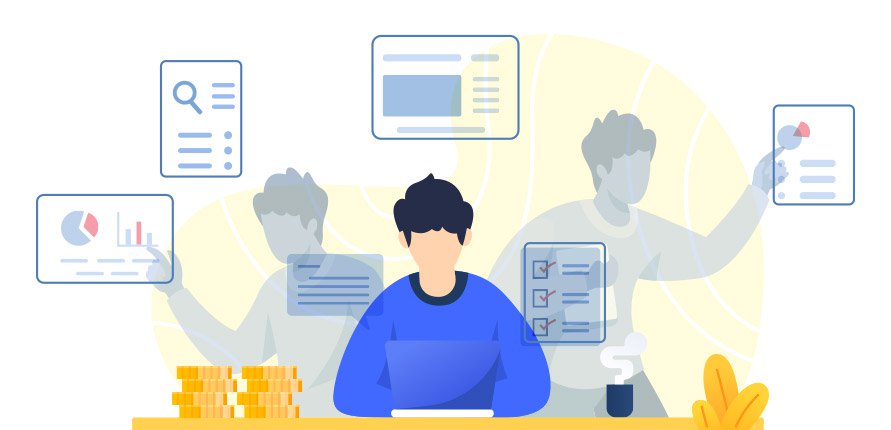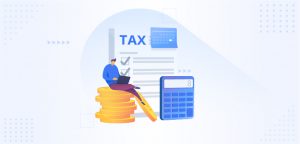
The self-employed individuals have long sought some real relief to support their businesses affected due to economic slowdown due to the outbreak of the pandemic. Since day one, the sole traders were anxiously waiting for some direct relief to fall in their kitty too. The government on 26 March 2020 granted their wish to an extent by announcing Self-Employment Income Support Scheme (SEISS). The scheme has been brought into action to support sole traders whose businesses have almost come to a standstill as a result of this pandemic.
Applications for the second and final grants are now open. Businesses eligible for the grant under SEISS must make their claim for the second grant on or before 19 October 2020.
Note that businesses, if eligible, can claim for the second grant, even if they did not make a claim for the first grant.
Eligibility to apply for SEISS
The eligibility criteria for both first and second grants under SEISS are the same.
Self-employed individuals and members in the partnership in firms who fulfill the following conditions can apply for the scheme:
- Traded in the tax year 2018-19 and submitted their self-assessment return
- Traded in the tax year 2019-20
- Intend to continue trading in the tax year 2020-21
- Were trading at the time of applying for the scheme unless affected by COVID-19
- Have lost trading/ partnership trading profits due to COVID-19
- Further eligibility test would include:
- Test 1: The self-assessment return for the tax year 2018-19 will be reviewed. The trading profits must be no more than £50,000 and at least equal to the non-trading income.
- Test 2: If the taxpayer is not eligible based on 2018 to 2019’s self-assessment tax return, then HMRC will consider the tax years 2016 to 2017, 2017 to 2018, and 2018 to 2019. The average trading profits must be no more than £50,000 and at least equal to the average non-trading income for 3 years.
[Note:
- HMRC will use the data from 2018 to 2019 tax returns submitted, to assess business’ eligibility to apply for grants under this scheme. Changes, if any, made to submitted returns after 26 March 2020, WILL NOT be considered while working out eligibility or amount of the grant.
- A self-employed individual does not necessarily have to claim the first grant in order to be eligible for the second and final grant.]
Online tool to check eligibility
You can use HMRC’s online tool to check if you can claim a grant through the Self-Employment Income Support Scheme. You’ll need self-assessment Unique Taxpayer Reference (UTR) number and National Insurance number while using the tool.
If the result from the online tool is that you’re eligible for the grant then HMRC will inform the date you’ll be able to make a claim from and ask you to add your contact details to remind you when the online service will be live.
Previous years’ tax returns
- If the income tax return of the tax year 2018-19 is not submitted yet, then individuals can submit it the latest by 23 April 2020.
- If the income tax returns of the tax year 2016-17 and/or 2017-18 have not been submitted then HMRC will still consider you for the grant and will work out your average profits based on periods of continuous self-employment, so either:
- 2017/18 and 2018/19 if the missing tax return is for 2016/17, or
- 2018/19 only if missing tax return is for 2017/18 even if you have submitted a 2016/17 tax return.
Amount of grant
The amount of this taxable grant is 80% of the average profits from the tax year 2016-17, 2017-18, and 2018-19. It is capped to a maximum of £7,500 for the entire period of 3 months paid out in a single installment covering 3 months.
The amount of second and final SEISS taxable grant in August will be 70% of their average monthly trading profits for three months paid out in a single installment and capped at £6,570 in total.
Click here to find out how HMRC will work out your total income and trading profits for the SEISS.
Other features of the scheme
- Taxability of grant: Even though the grant is not required to be repaid, it will be subject to Income Tax and National Insurance contributions. This grant is recorded as a part of self-assessment returns.
- Universal Credit: You can apply for Universal Credit while waiting for the grant. This grant may affect the amount of your Universal Credit you get, however, UC for earlier periods remains unaffected.
- Other work: If you receive the grant you can continue to work or take on other employment including voluntary work.
- Not self-employed in the year 2018-19: If you were not self-employed in the 2018-19 tax year then you will not eligible for this scheme.
How to apply for SEISS?
The online service to apply for a grant under SEISS will be available from 13 May 2020. HMRC will inform the eligible taxpayers for the grant and state them the date from which they can make the claim. If the claim is approved, then the taxpayers will receive a payment within 6 working days from the date of approval of the application.
Following details will be required for applying for a grant under SEISS:
- Self-assessment Unique Taxpayer Reference (UTR) number
- National Insurance number
- Government Gateway user ID and password
- Bank account number and sort code you want the grant to be paid into (only provide bank account details where a Bacs payment can be accepted)
- Self-declaration that the business is adversely affected due to coronavirus.
Record keeping
In addition to all record-keeping requirements in line with normal self-employment, the taxpayer receiving the grant is also required to maintain records for the following:
- The amount claimed
- The claim reference number
- Evidence that the business has been adversely affected by the coronavirus
Reporting requirement
The grant needs to be reported on the following:
- Self-Assessment tax return
- As self-employed income for any Universal Credit claims
- As self-employed income and that you’re working 16 hours a week for any tax credits claims












